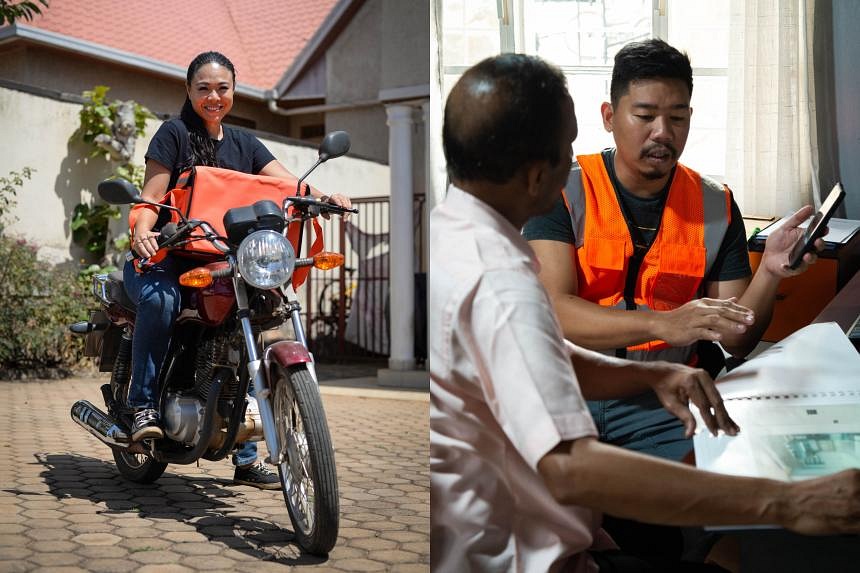Singapore ventures among South-east Asian firms taking root in Rwanda

Source: The Straits Times
KIGALI - RwandAir pilot Suzanna Seng, 39, was driving from her home near central Kigali to the airport when she was greeted by the sight of rows of red motorcycle taxis, their riders waiting vainly along the road for passengers.
It was March 2020, the start of the Covid-19 pandemic, and Rwanda had gone into lockdown. With its borders open only for returning citizens, and people forbidden from moving around freely, businesses were gravely affected and the livelihoods of millions changed overnight. Motorcycle taxi drivers were not spared.
"You can see the despair in their eyes because they live from payday to payday. So, not knowing if they will have enough food and money for tomorrow is not a nice feeling to have," said Ms Seng.
This drove the Singaporean to establish her courier delivery business, QNE Delivery Services, three weeks into the lockdown.
Her team of five locals continues to work out of an annexe the size of a bedroom at the back of her house. There, they coordinate deliveries of purchases from food to dog beds, with drivers making 25 to 30 trips daily.
Ms Seng's side hustle is just one of the few South-east Asian business ventures in Rwanda.
Even though Rwanda attracts more foreign direct investments (FDIs) than similarly sized nations such as Burundi and Haiti, it has found it challenging to attract corporations looking to expand and aspiring entrepreneurs.
The Rwandan government promotes the country as a business-friendly destination, and the FDI of the small landlocked African nation of 14.1 million amounted to US$398.6 million (S$545.3 million) in 2022, according to data from the World Bank.
Its net inflow has been increasing since before the pandemic. In 2019, FDI stood at about US$263.2 million. By comparison, countries such as Burundi and Haiti reported FDI net inflows of US$12.9 million and US$39.3 million respectively in 2022.
Prime Minister Lee Hsien Loong drew attention to Rwanda during a working visit there in June 2022 when he called for Singaporeans to venture into new markets, and named Rwanda as one of the "bright spots".
He noted it has a young population with a median age of 22, compared with the median age of over 40 in Singapore. PM Lee said that like Singapore in the early days of its independence, Rwandans had the same desire to progress, succeed, and to make a better future for themselves, and a government that was keen to create opportunities for its people.
Singapore's bilateral trade with Rwanda stood at $4 million in 2022, making the East African nation its 37th largest trading partner in sub-Saharan Africa, said Enterprise Singapore.
Now, there are about 10 Singapore companies in Rwanda, primarily in the digital, urban solutions and agricultural sectors.
In the country, the number of South-east Asian enterprises has been growing slowly, said Mr Amit Jain, director of the NTU-SBF Centre for African Studies. However, the lack of knowledge about Rwanda and its relative inaccessibility hinder more businesses from exploring one of the least corrupt nations in Africa. "Currently there are only a handful of South-east Asian businesses there... I'd be surprised if there are more than 25 companies," he added.
